DOOMED WILDLIFE
Horrific cruelty – legal trade and lack of protection are decimating South Africa’s primates
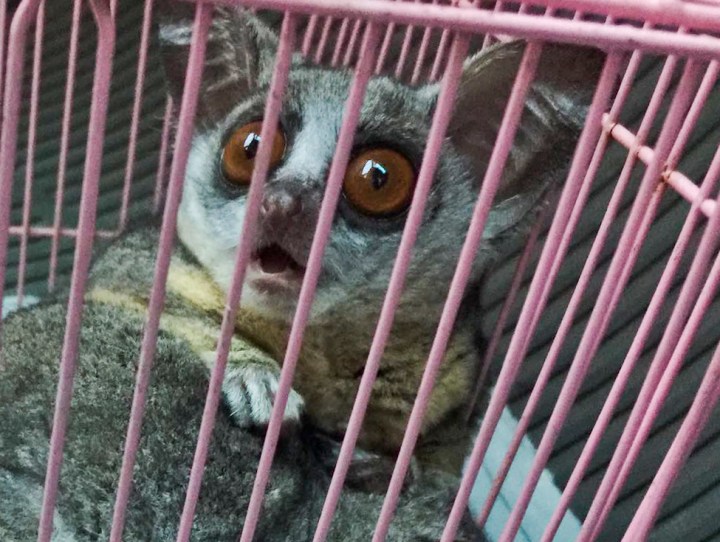
South Africa’s oversight failure in the export of primates and body parts is leaving them to a horrible fate, but nobody seems to care. One of the problems is that primates are often labelled ‘damage-causing animals’.
Primates are our closest cousins on the family tree of life, but we treat them appallingly. We hunt and shoot them, keep them in small cages, tie them up as pets and experiment on them because of their similarity to us. In South Africa, according to a recently released report, Our Kin Discarded, they fare particularly badly.
From OR Tambo Airport alone, from the start of 2016 to the end of 2022, 3,782 live primates were legally exported plus 5,244 dead hunting trophies consisting of 3,349 chacma baboons and 1,886 vervet monkeys. During this period 1,141 live bushbabies were exported and nine as hunting trophies. (Who on Earth hunts tiny bushbabies?)
Most of the live exports were for commercial trade (not zoos) into countries with highly questionable animal protection antecedents like China, the United Arab Emirates (UAE), Armenia and Bangladesh.
In Bangladesh, commercial trade in primates is illegal but is taking place, indicating it’s a conduit to other destinations. Ten out of 11 Bangladeshi animal-broking companies which imported nonindigenous monkeys from South Africa do not actually exist, which means the animals were exported lawfully from South Africa but imported illegally.
No checks are conducted by South African authorities into the legitimacy or even existence of importers listed on the permits. In a number of cases these were found to be nonexistent or either dummy entities or dummy addresses.
Just three South African exporters accounted for 72% of live primate exports:
- Mystic Monkeys & Feathers exported 1,128;
- Animal and Bird Exporter SA exported 1,065; and
- Parrots SA exported 424.
A report by the South African Anti-Money Laundering Integrated Task Force, published in November 2021, corroborates the research by Ban Animal Trading (BAT) and the EMS Foundation, and notes that the use of the legal wildlife industry masks illegal trade and is prevalent in South Africa.
“This includes wildlife breeders, hunting, taxidermy and legal wildlife trade exporters. In many cases specimens are stated to be captive bred when they are, in fact, wild caught.”
Zoos often engage in the laundering of animals, the illegal wildlife trade and play a potentially oversized role… in helping to launder illegal wildlife products into the supply chain.
Despite the status of South Africa’s indigenous primates being listed on the 2016 Regional Red List as of “Least Concern”, the extensive investigation by the EMS Foundation and BAT paints a very different picture. It finds South Africa’s primate trade to be poorly managed, ecologically damaging and unsustainable, and raises welfare and ecological concerns.
The report calls for South Africa to immediately issue a moratorium on the trade, hunting and killing of indigenous primates and the breeding, trading and keeping of exotic primates as pets.
The zoo industry
Zoos claim to play a major role in conservation and education. This is not only a fallacy, according to the report, but also an untruth and it allows the zoo industry to continue its wildlife trading business with very little scrutiny.
“Zoos often engage in the laundering of animals, the illegal wildlife trade and play a potentially oversized role… in helping to launder illegal wildlife products into the supply chain. Animals sold to or exchanged between zoos are seldom traceable.”

Monkeys ready for transport at Pakchong Pets Shop, Thailand. (Photo: Supplied)
South Africa not only allows for the export of exotic primates for biomedical research, but the country is also one of the main importers of rhesus macaques and crab-eating macaques from China.
A global problem
According to the International Union for Conservation of Nature Red List of Threatened Species, 60% of Earth’s primate species are threatened with extinction and about 75% have declining populations due to human activities. Globally, habitat loss and trade are considered the main threats to primate conservation.
Trade in live primates involves the capture and movement of thousands of individuals a year globally for the biomedical industry, the entertainment industry and personal pet trade markets. Both the legal and illegal trade in primates is unsustainable, say the researchers, and they are at risk of eventual extinction.
What owners of wild-caught primates don’t realise – or don’t want to – is that when the animal looks at you it is not a gaze of love but a stare of fear and confusion.
All primates are sentient beings. They experience emotions such as joy, fear, love, despair and grief. They also play an essential role in ecosystems and biodiversity, contributing to regeneration and ecosystem health and providing important functions and benefits such as seed dispersal, pollination, regeneration and predator-prey relationships.
The illegal trade in great apes, such as chimpanzees, is often supported by wholesalers in China, the UAE and Armenia which, says the report, often act as intermediaries between the traffickers and the final buyers in Asia, the Middle East and Russia.
Read in Daily Maverick:
“Trafficked from Serbia: How birds from Guinea end up in European pet shops”
A big problem, according to Our Kin Discarded, is that primates are deemed to be social problems and labelled by certain provincial conservation authorities as “damage-causing animals”. Once thus labelled, methods that can be used to capture or kill them include cage traps, poison collars, darting, call and shoot, foothold traps, dogs, poison-firing apparatus, denning and translocation. Trophy hunting of primates also serves no conservation purpose.
Visit Daily Maverick’s home page for more news, analysis and investigations
Our Kin Discarded is the fourth report in the EMS/BAT Extinction Business series. It lists a string of systemic failures of official oversight, which include documentation discrepancies, illegal shipments, untraceable destinations, absent verifications, inadequate safeguards and irrational or arbitrary hunting determinations. These activities involve wildlife breeders, hunting, taxidermy and legal wildlife trade exporters.
The report lists steps that South Africa urgently needs to take to arrest a deplorable situation. The Environment Department, it says, needs to jack up due diligence and enforcement, make the trade data available at national level, investigate discrepancies between national data and that of the Convention on International Trade in Endangered Species of Wild Fauna and Flora, support primate conservation and adopt a compassionate approach to primates.
‘It’s just cruelty’
All primates other than humans are wild animals and are unsuited to captivity. Cognitively, behaviourally, emotionally and socially, they are some of the most complex animal species on Earth. According to the report, their capture and removal from their natural habitats and social and family groups is extremely cruel and inflicts great suffering and distress, as well as resulting in injuries and even death.
What owners of wild-caught primates don’t realise – or don’t want to – is that when the animal looks at you it is not a gaze of love but a stare of fear and confusion. It must take considerable cognitive disconnect for the researchers who experiment on them.
Read in Daily Maverick:
“Wildlife trade – legal and illegal – is the biggest threat to global biodiversity conservation”
“New weapon in fight against wildlife crime launched in Western Cape”
Primates, says the report, live in large communities: social life defines them. They’re intelligent and interactive beings with sophisticated social knowledge and skills, able to navigate complex hierarchies and networks of cooperative and competitive social relationships. Males and females form short-term bonds that lead to reproduction or longer-term friendships that lead to cooperative child rearing.
Living an isolated life in a cage is social deprivation and extreme cruelty.
A few simple measures by the authorities, such as rudimentary checks into the existence of importers, a register of approved exporters and the introduction of the long-awaited electronic permitting situation would greatly reduce their persecution.
The Our Kin Discarded report was sent to the Department of Forestry, Fisheries and the Environment two weeks before publication for comment, but none was received by the time of publication. DM168
The primates
Bushbabies
Bushbabies are not protected under South Africa’s national environmental legislation and all the provinces permit their hunting and capture – subject, in some provinces, to permits.
During the period researched, 93% of bushbaby exports went to Thailand and all were linked to pet shops at the infamous Chatuchak pet market in Bangkok. Mystic Monkeys & Feathers, a private zoo owned by Christa Saayman in South Africa, facilitated 86% of these exports.
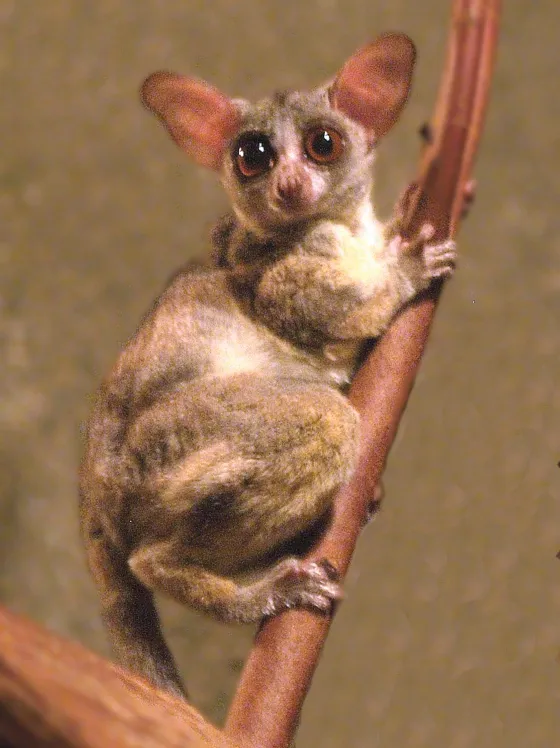
Bushbaby. (Photo: Supplied)
More than 50 of these Mystic Monkeys exports went to Thai animal breeder and dealer Pisit Pakawan, who was also the recipient of lion bones from South Africa. He has ties with Vannaseng Trading, a Laotian company named as a major trafficker of protected wildlife in 2016.
South African traders also export bushbabies to the US. Twenty individuals were exported to Gulf Breeze Zoo in Florida. In 2015, the zoo’s owner, Eric Mogensen, was accused of animal cruelty and many other violations.
Marmosets
Marmosets have become increasingly popular in medical testing because, according to scientists, “they are much better models than rodents”. They’re used for modelling the progress of conditions such as Parkinson’s and Huntington’s diseases.
Worldwide Primates in the US imports marmosets from animal trader Judith Janse van Rensburg, who has exported more than 1,000 since 2016. Worldwide Primates claims to be a leading supplier of premium-quality nonhuman primate models for research.
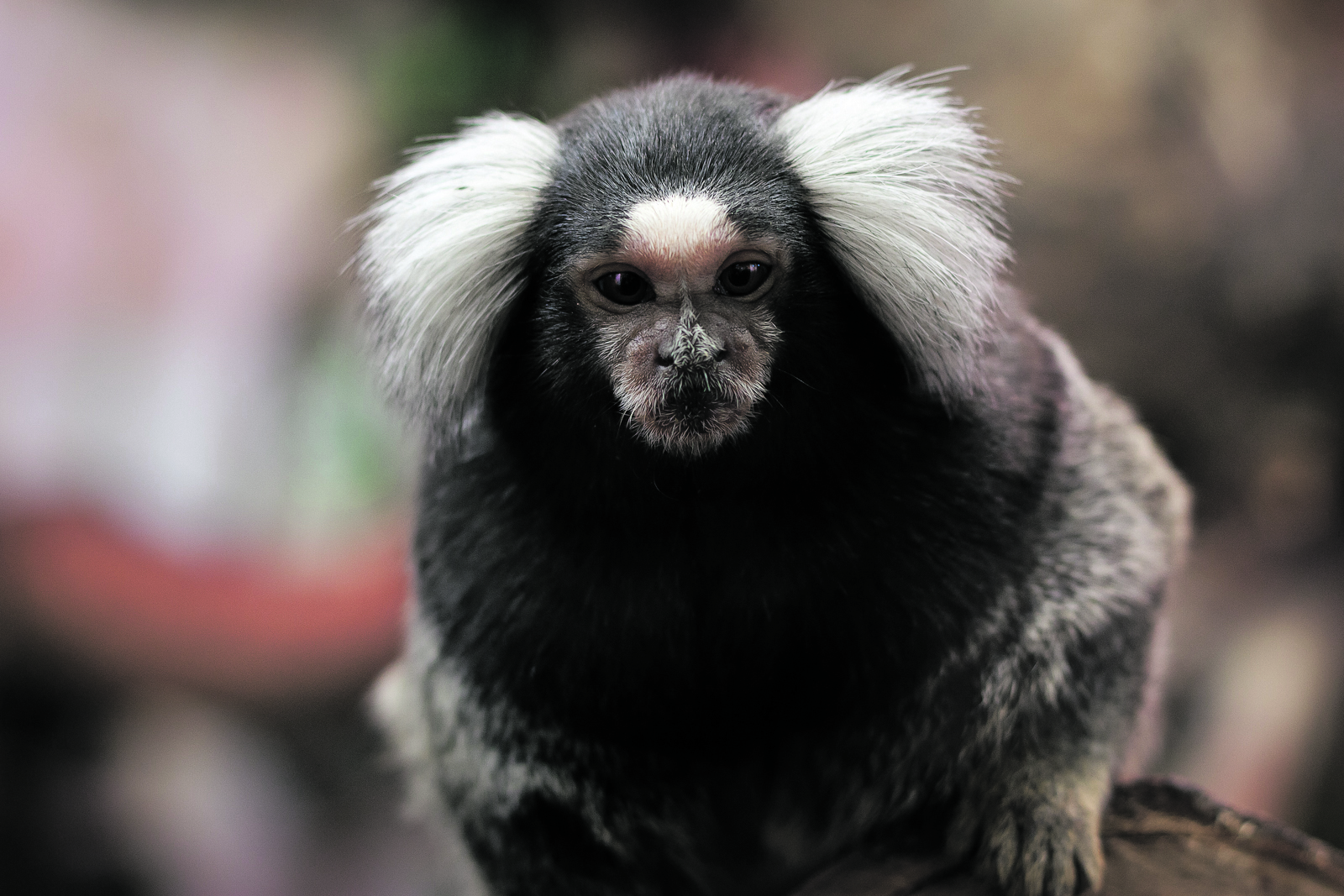
Common marmoset (Callithrix jacchus). (Photo: Supplied)
It was founded by Matthew Block, who is known for his involvement with the Bangkok Six, a notorious case in which six orangutans were smuggled in wooden crates from Singapore through Thailand en route to Moscow. Three died. Janse van Rensburg, together with Theuns van Zyl and Edward Coetzer (African Pride Imports and Exports), export marmosets to laboratories and monkey-breeding farms for laboratories in China.
Chacmas and vervets
South Africa is the largest exporter of primate trophies, especially chacma baboons and vervet monkeys, with more than 400 operators still advertising indigenous primate hunting. Each year, according to the report, provincial nature conservation authorities issue hunting proclamations stating how many indigenous primates can be “bagged”.
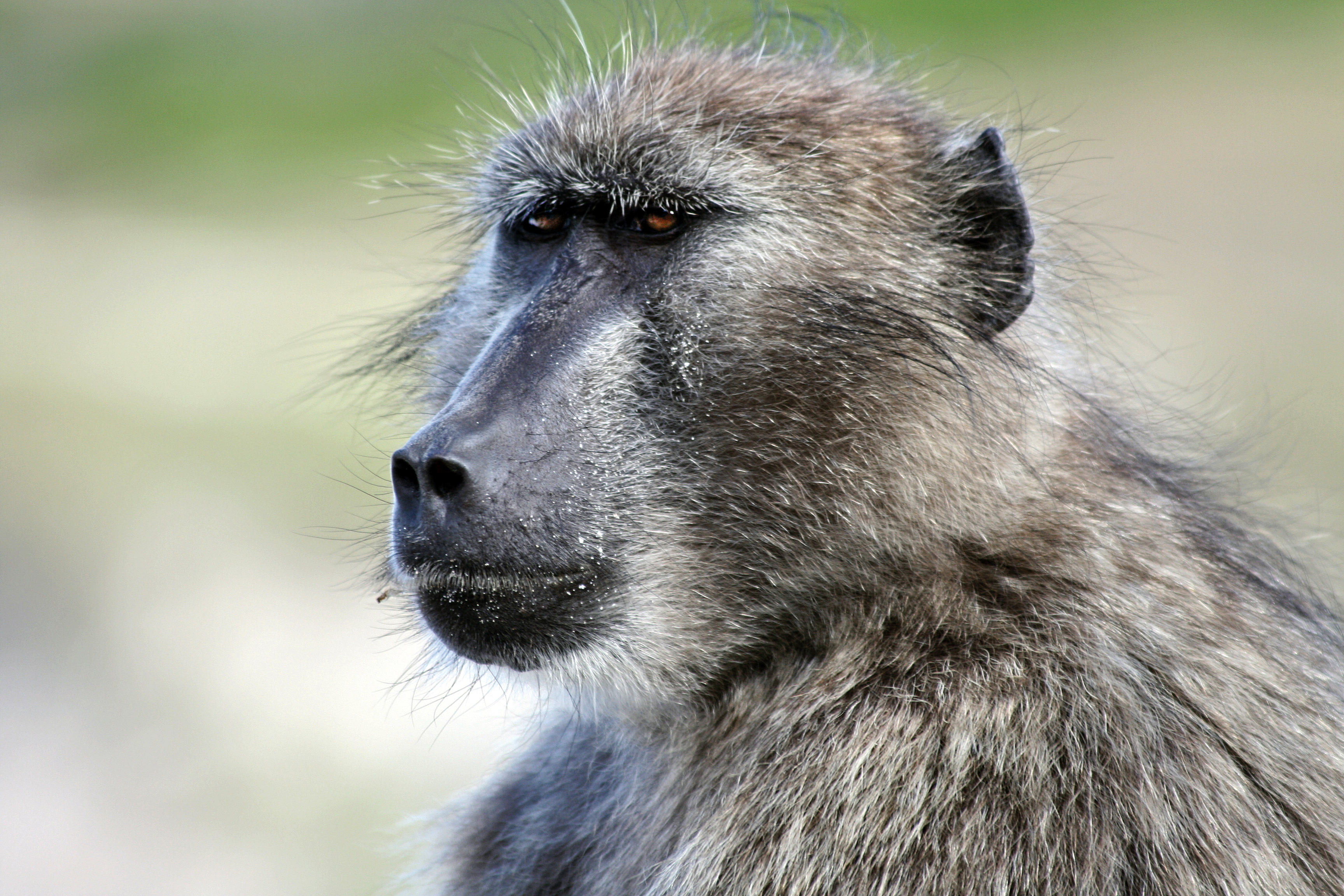
Chacma baboon. (Photo: Supplied)
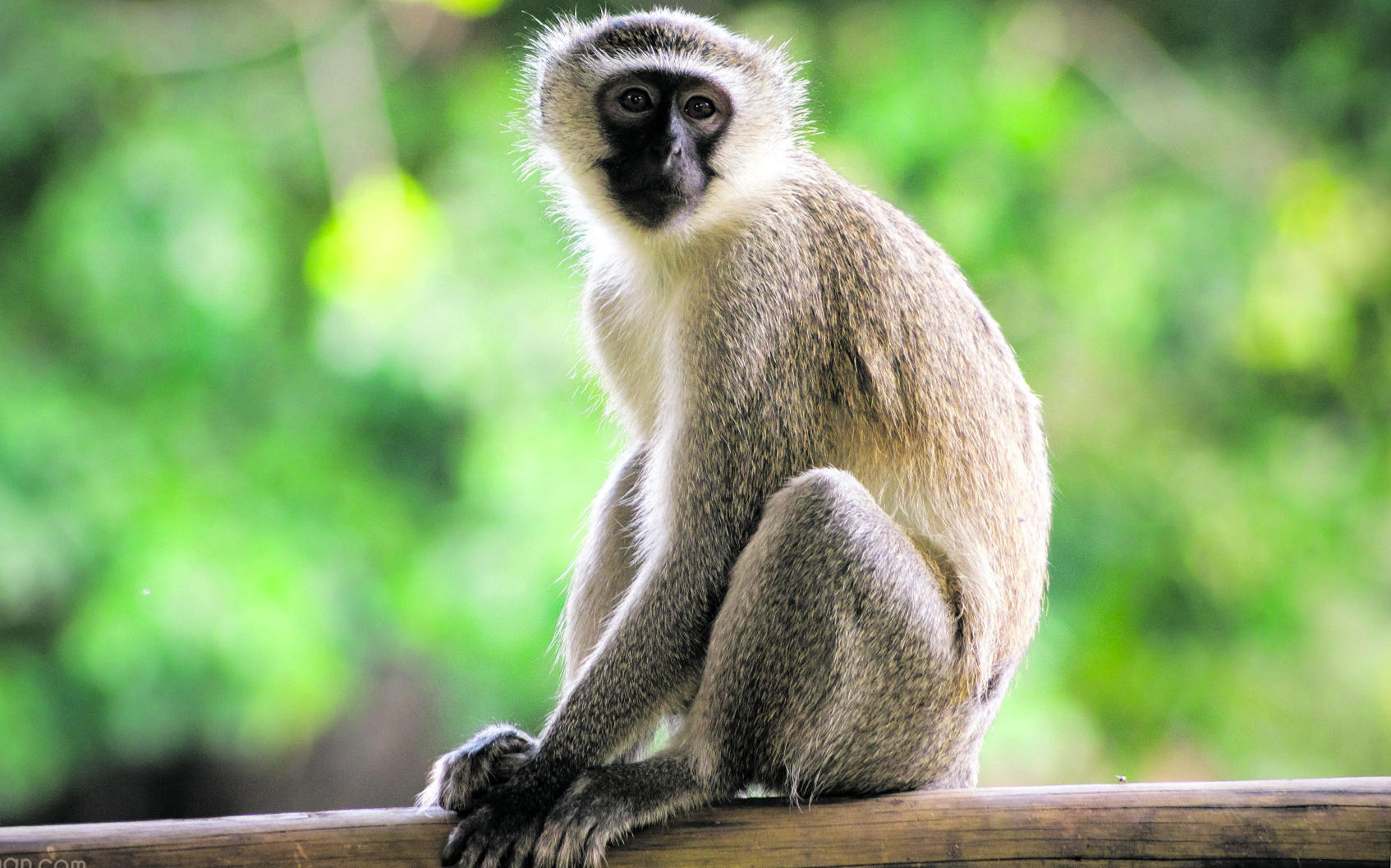
Vervet monkey. (Photo: Thomas Shahan)
“No consideration is given to whether they are males or females, whether they could be lactating or caring for young, what age they are or the role they play in their own societies and communities, and the impact on their families and groups is not taken into account.”

Squirrel monkey. (Photo: Supplied)
Squirrel monkeys, weepers and capuchins
It appears that the indiscriminate breeding of and trading in squirrel monkeys and weeper and tufted capuchins in South Africa was established through the import of wild-caught monkeys from Guyana from 2013 to 2015. Mike Bester, owner of Bester Birds and Animals Zoo Park in Pretoria, imported at least 66 tufted capuchins, 46 weeper capuchins and 130 squirrel monkeys, all wild-caught. DM168
This story first appeared in our weekly Daily Maverick 168 newspaper, which is available countrywide for R25.
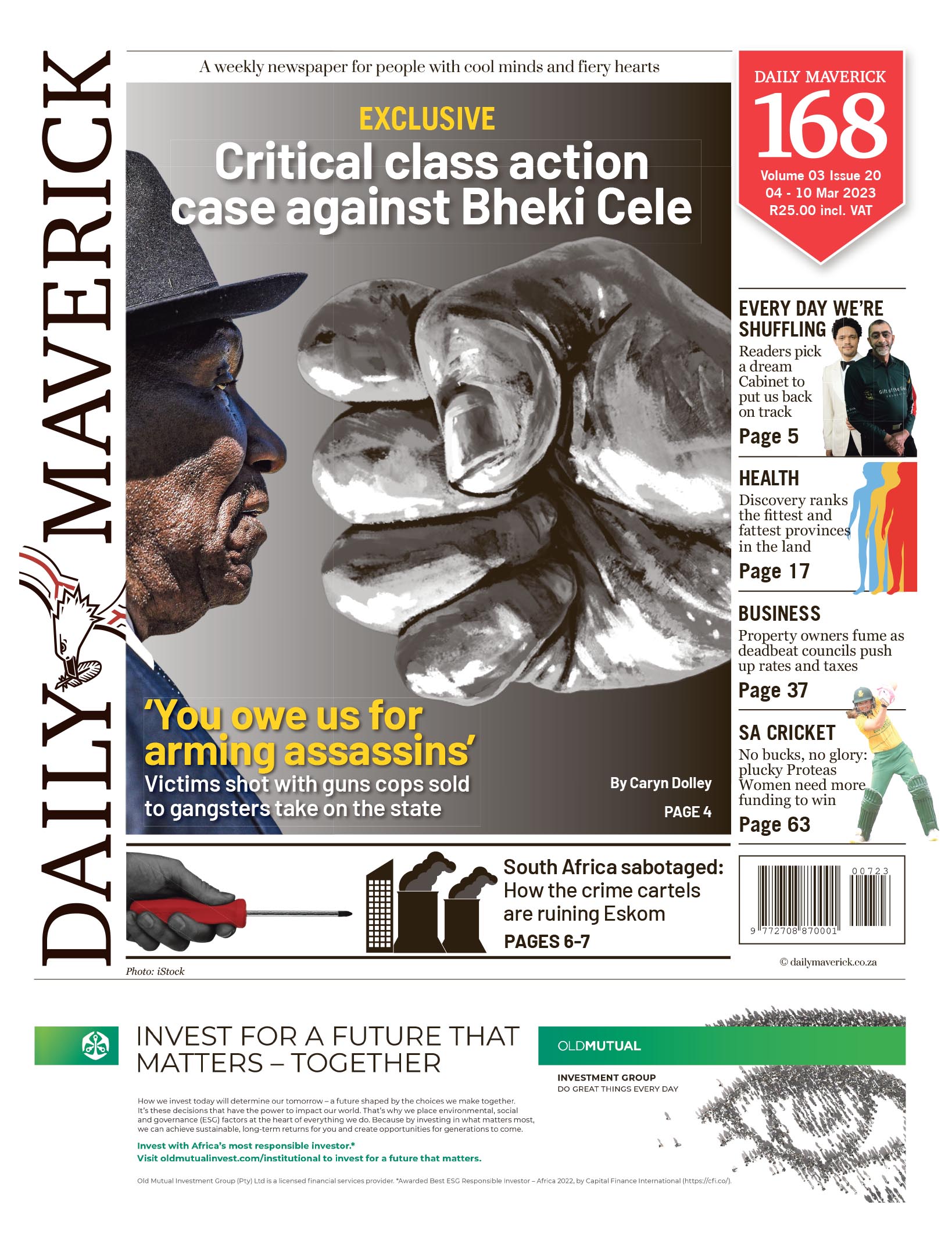


















 Become an Insider
Become an Insider
So, where do we start to stop this horrific trade? Which organisation can take action? What is the SPCA doing to prevent this?